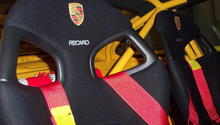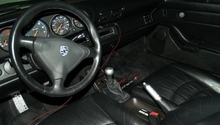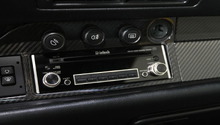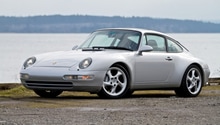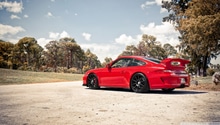Porsche 993: Aftermarket Modifications
An expression of your own creativity, a modified Porsche 993 can suit your needs and get your heart pumping even more than a stock one can. Read on to get an idea of what mods are out there, and why you might want to do them.
This article applies to the Porsche 993 (1993-1998).
Porsche built over 70,000 examples of the 993 worldwide. That's a lot of people who bought a factory vehicle that Porsche designed to be the best it could be for the target audience. With a handful of different models available, they did a fantastic job catering to everyone they could, but we're all unique owners and some of us want more. The ability to modify and tune up your car to suit your liking is one of the best parts of enthusiast ownership. Here are some of the ways you can modify your car to make it truly your own.
Directions of Modification
The first step to take before modifying your car is to determine exactly what you want it to do differently. For some, especially those who use their 993 regularly, the functionality of the car is of top importance. Functional mods to modernize the car and make it easier to enjoy every day are the way to go. For others, the car already performs beyond expectations, and they just want to give the car some extra flair and personalization to make it look just right. For others still, the looks and the ease of use are of no importance, and the raw speed and performance of the car are all that matters. For those delving deepest down the rabbit hole of customization, all three can be accomplished on one car.
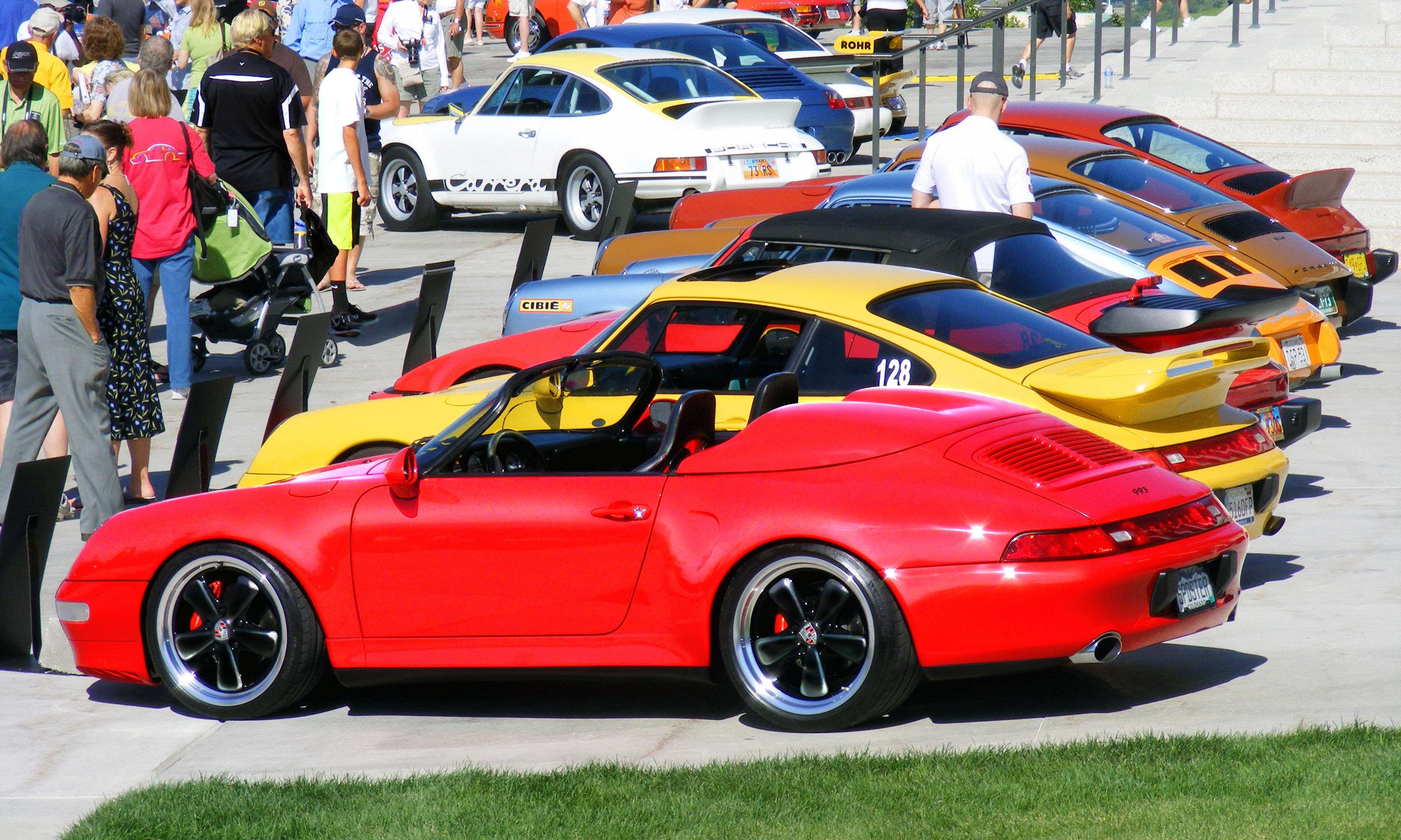
Functional Mods

DIY Cost - $150-1,000
Professional Cost - $300-1,500
Skill Level - Moderate; These types of modifications can be done at home; however, basic DIY skills may be needed.
A functional mod can be anything that makes the car a better or more convenient car to use. Improving aerodynamics or intake and exhaust systems, for example, can improve the efficiency of the car, resulting in mild increases in MPG. Installing HID headlights and fog lights vastly improves night visibility to match that of a modern car. An aftermarket stereo can include Bluetooth connectivity and other modern features, so your 993 isn't left in the technological dust.
Related Articles
- Porsche 993: How to Install HID Headlights - Rennlist.com
- Porsche 993: Exhaust Modifications - Rennlist.com
- Porsche 993: Aftermarket Sound System Modifications - Rennlist.com
"Show" Mods

DIY Cost - $2,000-10,000
Professional Cost - $3,000-13,000
Skill Level - Difficult; Installing body kits is usually left to the pros; if you want it to look like a show car, you have to get it professionally done.
A "show" mod is anything that changes the appearance of the exterior or interior of the car, just for the sake of changing the appearance. Some mods can also affect the performance, positively or negatively, so be sure you understand exactly what you are doing first. Body kits are aftermarket bumpers, fenders, and wings that make the car look more aggressive. Usually these are based on racing designs, with big vents and downforce adders.
Aftermarket wheels are extremely common upgrades. If some thought is put into size, weight, and fitment, then this visual modification can be a performance mod as well. Lowering a car can dramatically change its look. Show cars are usually much lower than a street or track car, to get that "slammed" look that accentuates the design of the body. This will greatly harm the performance of the car, however.
Interior mods include aftermarket seats, steering wheels, pedals, and shifters. These can be used to change the look, or even improve the ergonomics.
Related Articles
- Porsche 993: How to Install a Lowering Kit - Rennlist.com
- Porsche 993: How to Install Steering Wheel - Rennlist.com
- Porsche 993: Interior Modifications - Rennlist.com
- Porsche 993: How to Install Start/Stop Button - Rennlist.com
"Go" Mods
DIY Cost - $500-3,000
Professional Cost - $800-4,000
Skill level - Moderate-Difficult; Depending on the mod, some aren't too challenging to do, like replacing shocks, while others are better left to the pros like replacing the exhaust system.
"Go" mods simply make the car faster. They can improve horsepower, aerodynamics, or handling capabilities, but aren't necessarily "street-able" depending on how aggressive you get with the changes. This can range anywhere from mild improvements to a full-on caged track build. Suspension mods are typically a good starting place. Coilovers and sway bars will stiffen the ride, lower the center of gravity, and make the car handle sharper and flatter. Go too stiff though, and the car will be a pain to drive on the street. Wheels and tires are a very effective way to go faster. Wider and stickier rubber is the single most important factor of lateral traction, a.k.a cornering speed.
Aero mods can feed more air into the engine and brakes for better cooling and produce more downforce to corner faster on high-speed turns. This will typically only have effects on a racetrack, where speeds and consistent loads are high enough to need it. Engine modifications, of course, produce more power. This is very easy to do on turbocharged models, but naturally-aspirated cars can find more oomph as well. With so many variations of the same engine available, parts from higher-performance models can be retrofitted to breathe some extra fire into other 993s. The aftermarket has a giant range of parts available as well, but as with any mod, make absolutely sure you know what you are doing before taking it on.
If going fast is your thing, then you will need some upgraded brakes to keep up. Upgrading the pads and fluid is easy and inexpensive and will keep your car stopping on a dime even as temperatures come up. If you need even more heat dissipation, big brake kits are available as well.
Related Articles
- Porsche 993: Brake Modifications - Rennlist.com
- Porsche 993: Tire Modifications and Size Calculator - Rennlist.com
- Porsche 993: How to Install Supercharger Kit - Rennlist.com
Related Discussion
- Top 5 "Must Have" 993 mods - Rennlist.com


